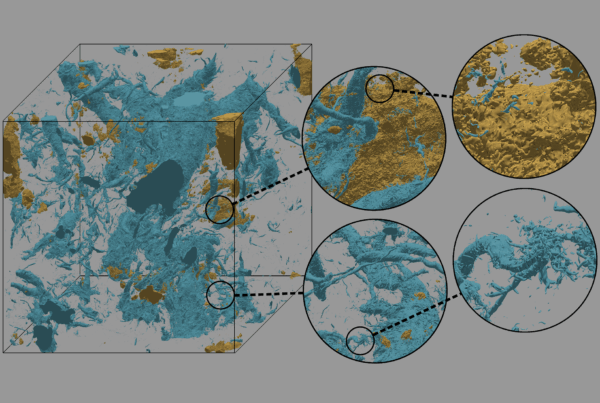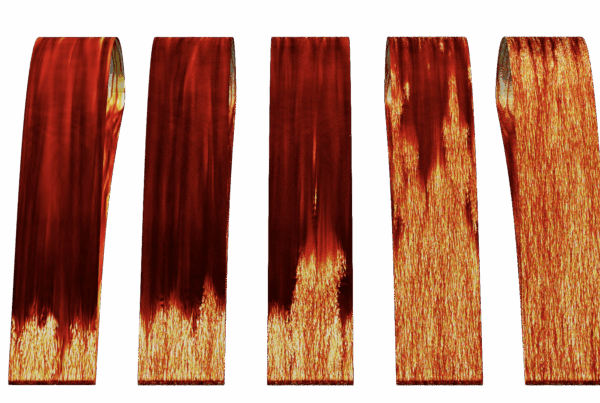Using Summit, the world’s most powerful supercomputer housed at Oak Ridge National Laboratory, a team led by Argonne National Laboratory ran three of the largest cosmological simulations known to date. They modeled nearly two trillion particles in each simulation to trace matter distribution and generated a total of eight petabytes of data. These “virtual universes” will enable scientists to compare next-generation telescope observations with some of today’s reigning physics theories, including the impact of dark energy and the mass of neutrinos, once thought to be massless, on the structural formation of the universe. “This data will be very valuable for our studies with the Large Synoptic Sky Survey Telescope,” said Katrin Heitmann, Argonne physicist and computational scientist and an Oak Ridge Leadership Computing Facility Early Science user. Currently under construction, the telescope will image about 37 billion stars and galaxies, and supercomputing simulations are preparing the project for the monumental data analysis required.
ORNL’s Summit supercomputer was used to simulate and visualize the matter distribution of a virtual universe
You May Also Like
 FeaturedScience
FeaturedScience
The New Frontier of Fluid Turbulence Simulations: 35-Trillion Grid Points
Using the Frontier supercomputer at the Department of Energy’s Oak Ridge National Laboratory, researchers from the Georgia Institute of Technology have performed the largest direct numerical simulation (DNS) of turbulence in three dimensions, attaining a record resolution of 35 trillion grid points. Tackling such a complex problem required the exascale…
Coury TurczynFebruary 9, 2026
 FeaturedScience
FeaturedScience
Frontier Provides High-Fidelity Insights into Turbine Aerothermal Performance
In a long-running collaboration with GE Aerospace, researchers at the University of Melbourne in Australia have been steadily working to improve the performance of high-pressure turbine (HPT) engines through computer simulations on leadership-class computing systems. These turbines are the heart of jet engines used in many commercial and military aircraft.…
Coury TurczynJanuary 27, 2026
 FeaturedScience
FeaturedScience
Call for Proposals Open to Develop Discovery Supercomputer’s First Science Applications
The challenge of building the most powerful supercomputers in history is one thing. Developing complex scientific applications large enough to run on them is another. Starting January 12, through March 16, 2026, researchers will have the opportunity to apply to be the first users on the Discovery supercomputer, arriving in…
Jeremy RumseyJanuary 12, 2026



